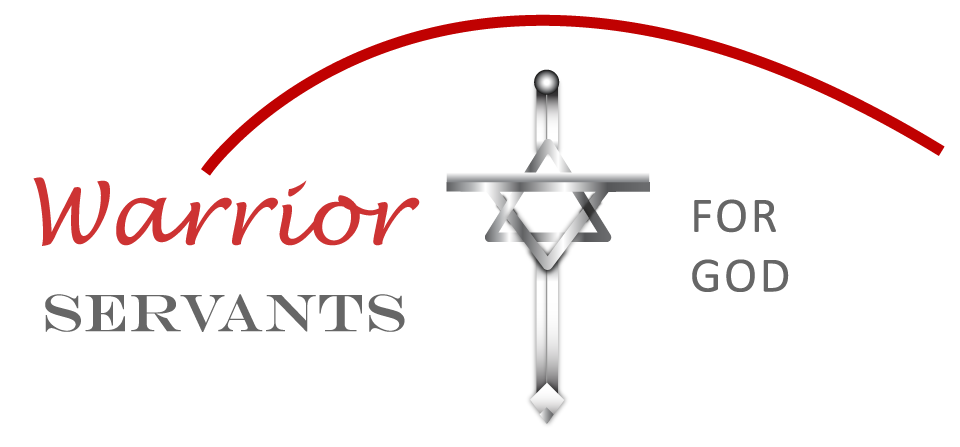NEVERTHELESS, NOT MY WILL
THE WILL OF THE FATHER
PART I - NEVERTHELESS, NOT MY WILL
WHY is the will of the Father so important? And before we answer “why”, HOW do we even know that the will of the Father is important in the first place? WHAT (if anything) tells us that the will of the Father is such a monumentally primary priority?
There are at least SEVEN standout giveaways that hail the will of the Father as a peremptory imperative:
1. The Life of Christ
2. The Cross
3. The Word
4. The Mind of Christ
5. Love
6. Wisdom
7. Our Conscience
THE LIFE OF CHRIST
For a start, one major signpost that tells us that the will of the Father is of paramount importance is that the very Son of God Himself, who became flesh and dwelt on earth amongst men, exhausted every living ounce of all that was His earthly life on the single-minded pursuit of fulfilling His Father's will. When it came to this deep-seated and unwavering personal priority, Jesus is famous for saying. "Nevertheless, not My will, but Your will be done." - LUKE 22:42.
This defining statement by Jesus is the profound distinction of both the inward hallmark of His heart (internal evidence), and the outward example of His life to all of man (external evidence). Nothing else took precedence for Jesus, either inwardly or outwardly. The life of Christ reinforces the Father's will that not only are we to LIVE in the Spirit (produce internal evidence) but we are to also WALK in the Spirit too (produce external evidence) - GALATIANS 5:25. In other words, we are to not be HEARERS only of the Word (the will of the Father), but DOERS too - JAMES 1:22.
Every thought and action of Jesus, every heartbeat expired and second expended by Jesus, all converged on the frontline of fulfilling nothing but His Father's will, even at the expense of His own personal will. Placing the will of the Father before our own will is both the example we see in Jesus as the "living Word", as well as the message we hear in the "written Word". Where it states: "For whoever wants to save their life will lose it, but whoever loses their life for me will find it." - MATTHEW 16:25, this scripture is our own personal call to also say, “Nevertheless, not my will, but Your will be done.”
For Jesus, the will of His Father was forever "first and foremost", and permanently "preeminent and prominent". And for this reason, it behoved God the Father to publicly declare from the heavens above, "This is My Son in whom I am WELL pleased." The priority of holding the “Father's will” as paramount is furthermore ensconced right at the very beginning of the Lord's Prayer where Jesus leads with "Our Father in heaven, Hallowed be Your name. Your kingdom come. Your will be done On earth as it is in heaven.” - MATTHEW 6:9-10.
THE CROSS
The second prominent attestation is the Cross itself. The Cross speaks resolute volumes on the pattern of prioritising the Father's will. This begins with the Cross’ fundamental design. Two pieces that are strutted permanently together as one. It is the will of the Father that brings the two pieces of man and God together as one. The main brace of the Cross is the vertical truss that points relentlessly heavenward, like a finger permanently urging our attention to be ever inclined towards the Father above. And the other girder of the Cross, positioned horizontally, points simultaneously forever towards man, bi-directionally representing ALL men "as far as the East is from the West".
And of this second strut, it is permanently yoked to the vertical, signifying the principle of a life being sustained by the restored relationship with the Father, forever inclined to gazing upwards at the Father, on one hand, whilst its foundation remains firmly established on the rock below. "Therefore whoever hears these sayings of Mine, and does them, I will liken him to a wise man who built his house ON THE ROCK: and the rain descended, the floods came, and the winds blew and beat on that house; and it did not fall, for it was founded ON THE ROCK." - MATTHEW 7:24.
The Cross tells us WHAT is important to our Father. And it tells us WHAT was important to Jesus. But at the same time, the Cross also tells us WHY the will of the Father is so important. "Knowing" and "doing" the will of the Father speaks to the abiding pre-requirement and notable imperative of "RELATIONSHIP". Without relationship, how will we ever come to know the Father's will? Knowing and doing the will of the Father proves the existence of "RELATIONSHIP". And THIS is why the will of the Father is so important to God. Because knowing His will and doing His will proves we abide in His presence, as well as in the flowing rivers of living relationship with Him.
And of this relationship, it applies that faith is the evidence of things hoped for. And without faith, we cannot please our Father. Faith is the fabric and the foundation upon which this primary relationship is fostered and furthered, and upon which, we too, like Jesus before us, are also able to please our Father. In pointing heavenward, the vertical pillar of the Cross represents this foundational and anchor relationship.
As the mainstay of the Cross, the vertical beam also tells us that THE pillar to the will of the Father is "relationship". And it was THIS pillar of being united in mind and soul and heart through relationship, wrought by the union of Jesus with our Father upon the altar of God's will, that produced the endearing public acknowledgement: "This is my beloved son, in whom I am WELL pleased."- MATTHEW 3:17.
THE WORD
The third prominent pillar to demonstrate the priority of God's will is THE WORD itself. And the Word ties back perfectly to the "life of Christ" as well as to "the Cross". The entirety of God's will culminates in two overarching commandments which together are both the PINNACLE and the CORE of both "living" (inward evidence) and "walking" (outward evidence) in His Word (the Father’s will). These two paramount declarations of His will are also inextricably baked into both the EXPRESSION of "Jesus' life", and the ACCOMPLISHMENT of "the Cross"
Firstly, in pointing up to the Father, the vertical pillar of the Cross represents the "priority of vertical relationship". In this regard, it typifies the foremost of the two greatest commandments. "And Jesus said unto him, Thou shalt love the Lord your God with all thy heart, and with all thy soul, and with all thy mind. This is the first and great commandment." - MATTHEW 22:37. The living Word, Jesus, accentuates this qualification three ways to not only place repeated emphasis on the priority of the will of the Father, but to also emphasise that we are to love our Father with our entirety. Completely. Not partially, but wholly and exhaustively. Not in a lukewarm manner, but with a stoked fervency.
The first or primary brace of the Cross, being the centre piece of the Cross that points eternally heavenward, is emblematic of the first and greatest of the two greatest commandments. As the centre piece, this tells us that this commandment will always be the focal point of the Father’s will. And not because our Father is ego-centric, but because of what that commandment as the centre piece of our lives actually gives us in all in return. Hence why it is called the “first and greatest”.
The second commandment is likewise representative of the second piece of the Cross, namely the Cross’ horizontal girder. In turn, this is the part of the two-piece structure that points forever towards man. And of this commandment, the second logically and spiritually follows the first. In other words, the second commandment, just like the second part of the Cross, takes its lead, its direction and its substance from the vertical mainstay that ALWAYS carries it and permanently sustains it. "And the second is like it: "Love your neighbour as yourself."" - MATTHEW 22:39. It is only right relationship and relating rightly with the Father that empowers us and releases us to rightly relate to our neighbour and to love our neighbour as ourselves.
All that is the written Word, being the work of hundreds of years in the writing and a span of multiple authors and books, all converge, culminate and condense into these two greatest of all commandments. These two most sovereign of commandments summarise the entire will of the Father. And of both the "life of Christ" and "the Cross", they both represent the perfect fulfilment of them both. No person before or since has shown greater love for the Father, or greater love for His neighbour, than our Lord Jesus Christ.
THE MIND OF CHRIST
Christ often expressed His mind in parables. Parables are frequently a "proof point of transformed lives", as well as a "call to action". As an overarching summary of our call-to-action, and a yardstick for our individual transformation, the Father calls us to two things. He calls us to "communion with the Father" and to "community with man". And this two-way calling is perfectly illustrated by the mind of Christ through the parable of Mary, Martha and Lazarus.
This classic story of "the three friends of Jesus" is an object lesson to us all, both individually and corporately. The three siblings of Mary, Martha and Lazarus represent the three elements necessary to man's personal COMMUNION with the Father, as well as to man’s personal COMMUNITY with his neighbour. And in much the same way that God finds His full and complete expression through the three Persons of the Holy Trinity, the three siblings of Mary, Martha and Lazarus likewise personify how the Father's divine will is personally apprehended and accomplished in all of man.
As such, Mary, Martha and Lazarus are not separate or "mutually exclusive". By being siblings in the flesh, all three are in fact necessary and complimentary siblings of how we individually and corporately arrest and affect the will of the Father IN THE SPIRITUAL. And the account of these three siblings likewise ties perfectly back to the previous proof points of the importance of the Father’s will. For in fact, Mary, Martha and Lazarus all converge upon "the Cross"; they all intersect with the two greatest commandments of "the Word"; and they all culminate in our own lives becoming a personal example of "the life of Christ". Along with the previous proof points, the parable of Mary, Martha and Lazarus correspondingly also points us to the apprehension that the will of the Father is of paramount priority.
As an analogy for "relationship", Mary typifies the first part of the Father’s two-way calling above, which is unto "communion with the Father". As such, Mary highlights and singles out the primary priority of the Father’s personal and perfect will for man's unbridled relationship of communion with Him as our Father. Once again, the vertical pillar of the Cross has primary significance. In this parable, the vertical mainstay of the Cross is representative of the account of "Mary".
When one reflects upon the title "Father", “Father” is a title that can only apply or pertain to "relationship". On the other hand, the title "God" is one that pertains to "sovereignty". In JOHN 6:38, Jesus says, "For I have come down from heaven, not to do My own will, but the will of Him who sent Me. This is the will of the Father who sent Me." Jesus speaks here specifically of “the Father's” will. Likewise, the Lord's Prayer also speaks of “the Father's” will. It mentions “the Father’s” will being done on earth as it is in heaven. In that the role of Father is relational, the Father's will, then, is the will as it pertains "to relationship". Which is why, when compared with Martha, Mary represents for Jesus “what is better” for Mary represents "relationship". The key to the will of the Father will always be RELATIONSHIP, first and foremost.
On the other hand, "Martha" typifies service. As such, Martha represents the second part of the Father’s calling, which is unto "community with man". And for the same reason, Martha represents the second greatest commandment, which is to “love your neighbour as yourself”. Whereas Mary relates to the “vertical mainstay” of the Cross, Martha pertains to “horizontal brace” of the Cross. And just as Martha typifies service, community is about service. And so, too, is the horizontal truss consistent with the analogy of service too. The biblical emblem of service is a yoke. A yoke is typically a device that is straddled horizontally across the shoulders to help bear the weight of any burden. It was the horizontal piece of the Cross that was straddled across Jesus's shoulders to help Him carry His Cross to Golgotha.
But the mind of Christ reveals that there is also a third part to this analogy and to the will of the Father being apprehended. Lazarus. Lazarus is frequently part of the narrative whenever the Word speaks of Mary and Martha. Martha, Mary and Lazarus are deliberately yoked (as a spiritual trinity) by the LORD as an object lesson and didactic message to His church. We all need to relate (Mary); we all need to serve (Martha); and we all need to die to the old nature (Lazarus) in order to receive the second nature that is the resurrection life in Christ. None of us can walk in the spiritual way of Mary and Martha unless we all personally go through the Lazarus experience in THIS life. Which is to die to the old nature and come alive to new nature that is alive to the Spirit of the Father. In other words, none of us can either KNOW the will of the Father, or FULFILL the will of the Father, without living and walking in the shoes of all three siblings. It's not which one, but all three, just as the Father, the Son and the Holy Spirit are one.
THE WILL OF THE FATHER
A YES AND AN AMEN
“For no matter how many promises God has made, they are “Yes” in Christ. And so through him the “Amen” is spoken by us to the glory of God.” – 2 CORINTHIANS 1:20 -
For the will of the Father is the "fullness and the supply", the "richness and the fat", of every promise ever made. And of these promises, they are a portrait of love, birthed by the will of the Father and fulfilled by His hand. In the fullness of the Father’s will, we find our own fullness and sufficiency. We shall never lack. For the will of the Father is for us. It always has been. And it always will be. For our Father is the great I AM. Therefore, His will is also the I AM. And of His will and all His promises, as "Father" He leads with “YES”, and as "God the I AM", He calls them into existence with “AMEN”.
“Now to the King eternal, immortal, invisible, to God who alone is wise, be honour and glory forever and ever. Amen.”
1 TIMOTHY 1:17
- God's richest blessings, Wayne Biehn


